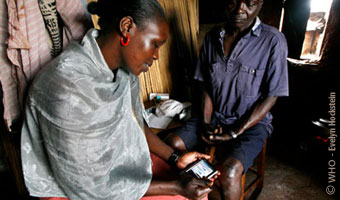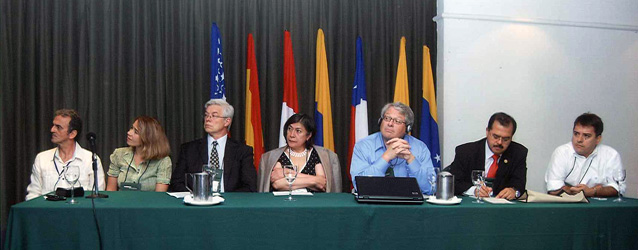ECLAC Promotes E-health for All

Electronic health (e-health) seeks to improve the quality of service and efficiency in health systems. Making these services safely accessible from any given place is the fairest solution to the population’s healthcare needs.
Through Programa SocInfo, ECLAC is promoting e-health as part of information and communications technologies (ICT) that contribute to the development and social inclusion of countries in the region.
E-health implies the use of ICTs by health authorities and professionals, as well as personalized systems for patients and the population in general. It covers a broad array of applications, such as electronic medical records, telemedicine services, health portals and hospital management systems, among others.
Given its potential to improve access to healthcare and the velocity of medical attention, reduce waiting time, generate alerts, save costs and heighten the effectiveness of diagnoses and therapies, e-health seems to be the most efficient and effective means to provide these services, both in public and private systems.
Every country is developing e-health projects, most of them still incipient, that range from telephone services to sophisticated data transmission systems. These projects aim to provide healthcare in remote areas, bring health centers nearer to the population, facilitate access to specialists, obtain timely epidemiologic information and train health personnel in remote areas. There are interesting private or mixed initiatives, but aimed mainly at the population with capacity to pay.
The project “Inclusive Political Dialogue and Experience Sharing”, carried out by ECLAC and the European Union (through the @LIS2 Programme), seeks to contribute to the design, follow-up and evaluation of e-health policies and programmes.
All of the region’s countries have recognized the need to give priority to e-health and have pledged to achieve eight goals related to the Regional Action Plan for the Information Society in Latin America and the Caribbean, eLAC2010, to be met by 2010. They include establishing telemedicine services in 70% of public health centers and in 80% of public hospitals, and training 80% of public health professionals in the use of ICTs.

Sponsored by ECLAC and the European Union, the Conference on Telemedicine held in Cartagena de Indias, Colombia on October 9-11, 2009, stressed the importance of developing e-health in the region.











